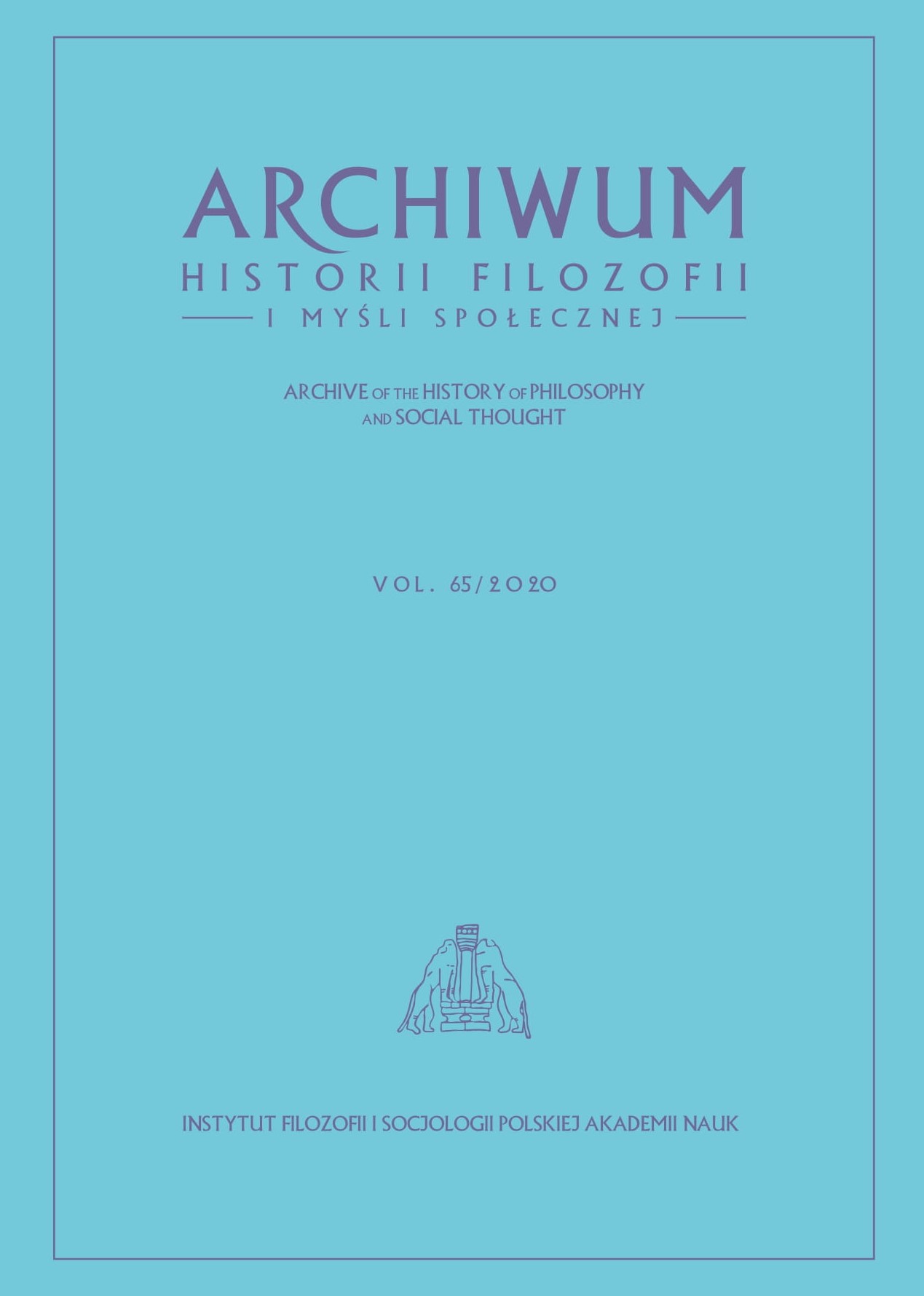Kruche rusztowanie świata. Doświadczenie choroby a granice analityki egzystencjalnej
Fragile Framework of the World. Experience of Disease and Limits of Existential Analytics
Author(s): Bartosz BednarczykSubject(s): Social Philosophy
Published by: Instytut Filozofii i Socjologii Polskiej Akademii Nauk
Keywords: Phenomenology; deconstruction; existential analytic; Martin Heidegger; disease; body; worry
Summary/Abstract: The present article constitutes an experimental attempt to analyse the problem of disease in the perspective of Martin Heidegger’s existential analytic. The objective is not to elaborate on the phenomenology of disease, but rather to identify a potential place of the issue in the analytic, which, consequently, reveals its fundamental limits. At first, existential analytic may appear to be an excellent tool for describing the experience of disease in comparison to classical metaphysics. Therefore, the question is posed why Heidegger remains silent about the problem. The deconstructive reading of Sein und Zeit shows that worryabout-disease cannot be seen as either fear (Furcht) or anxiety (Angst), and that this concept indicates the limitations of such a dualism. Th e worry is finally recognized as a specific Grundstimmung. Then the present analysis attempts to exceed the discovered limits and indicates that the problem of disease could not be adequately addressed by Heidegger, as he did not problematize the body in its transcendental dimension. Susceptibility to disease presupposes the embodiment of being-in-the-world. Being changed by a disease may be even more unbearable than the threat of death. If Heidegger’s characteristic of Dasein is organised around the problem of finitude and mortality trauma, the revelation of this ignored dimension leads to rethinking the specificity of the human being.
Journal: Archiwum Historii Filozofii i Myśli Społecznej
- Issue Year: 65/2020
- Issue No: 65
- Page Range: 351-368
- Page Count: 18
- Language: English

